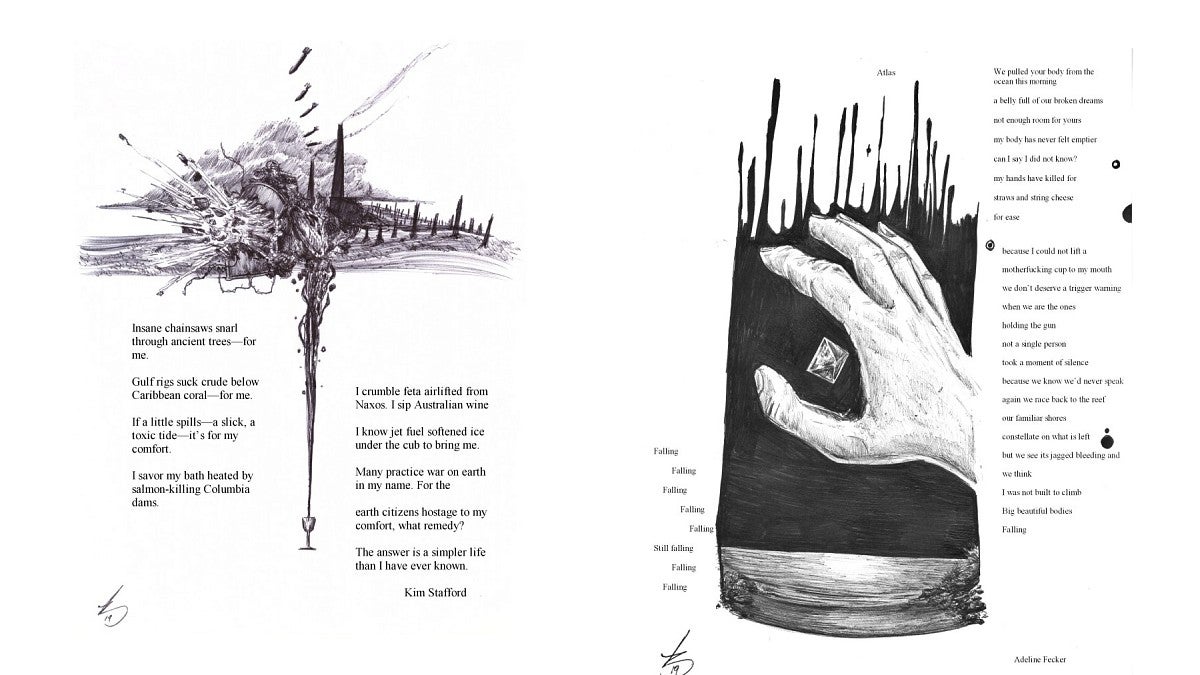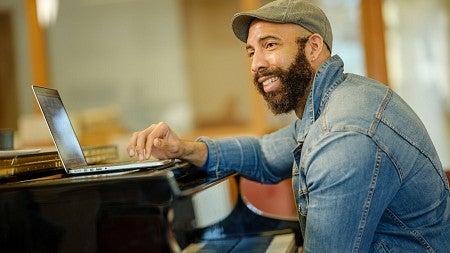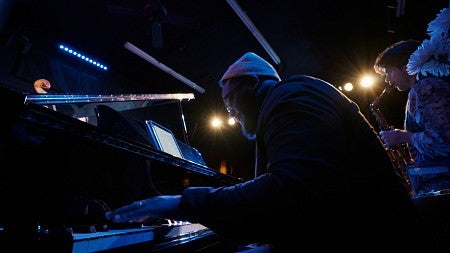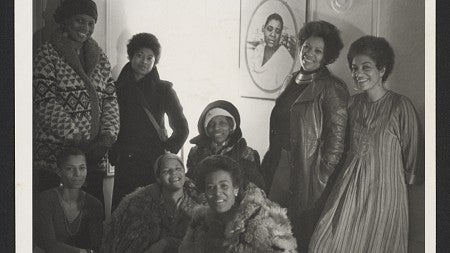
Foundations of a Holistic Healer
By Ashley Lorraine Wiesner
3 min read
Adeline Fecker’s work seems to exist in disparate worlds—humanities and science. She’s artistic but at ease in a lab. She’s a poet but wants to be a doctor. To Fecker, humanities and science inform each other. The great mysteries of the world fascinate poets and scientists alike, she says.
Fecker explored some of those mysteries on her way to earning degrees in biology, chemistry, and psychology in the spring of 2020 and graduating with honors from the Clark Honors College. She researched ecopoetry and zebrafish behavior—pursuing change as a poet and a scientist.
In 2018, Fecker was struck by the gravity of the climate crisis and wanted to raise awareness in an engaging way. She turned to ecopoetry, which focuses on the natural world and our place in it.
“Humanities can move us in a way science cannot,” Fecker says. “Especially with such an existential threat as climate change.”
Fecker and fellow students Nolan Kriska and Hailey O’Donnell teamed up with Barbara Mossberg, a professor of practice in literature in the honors college, to create an ecopoetry installation for the 2019 Undergraduate Research Symposium.
The display featured a gallery of student-written ecopoems on large posters paired with natural objects, such as seashells. Fecker sees poetry as a vessel to inspire action and the installation encouraged viewers to do just that—consider how they might react to the environmental crisis.
To bring her vision to life, Fecker put in about 100 hours organizing art, writing poetry, and overseeing the design of the project.
“Writing poetry that invoked healing and addressed suffering,” was at the core of Fecker’s work says Mossberg.
Fecker’s work to inspire change through the humanities was preceded by a scientific project studying the social behavior of zebrafish.
Beginning in 2017, Fecker worked alongside Philip Washbourne, professor of neuroscience and biology, to examine which sensory system in zebrafish is most important to social behavior; they analyzed how senses such as sight and smell related to social behavior. This work can help inform therapies for autism spectrum disorder.
Fecker was attracted to this research because it is interdisciplinary, combining psychology and biology. She spent nearly 2,000 hours on this project and worked on every part of it: she learned practical lab skills—such as labelling antibody and dissecting tissue—and also professional ones, such as presenting research and working independently.
“Adie is highly motivated and not daunted by challenging experiments or workloads,” Washbourne says. “It says a lot about her work ethic.”
Fecker fulfilled her honors college thesis requirements through this project but that wasn’t her primary motivation. The idea of improving the lives of autistic people kept her inspired. Fecker notes it wasn’t her goal to help cure autism because, she says, people who are “neuro-atypical” don’t need to be cured. Instead, she says, her work should be viewed as paving a path for holistic therapies.
“I loved this project because I was able to see it from start to finish,” Fecker says. “From an educational standpoint, I’ve learned a lot more than I would have repeating one part of the project over and over.”
Her desire to promote change continues to be an influential force in her life. In the wake of COVID-19, Fecker has become an emergency room scribe and a Red Cross volunteer. She plans to attend medical school, write poetry, and become a doctor who advocates for holistic care. Science and humanities will be the foundation of her practice.
Says Fecker: “I want to emphasize a holistic, empathic approach to care and a journey through illness.”
Ashley Wiesner, MS ’20 (journalism), is a staff writer for the Clark Honors College.




